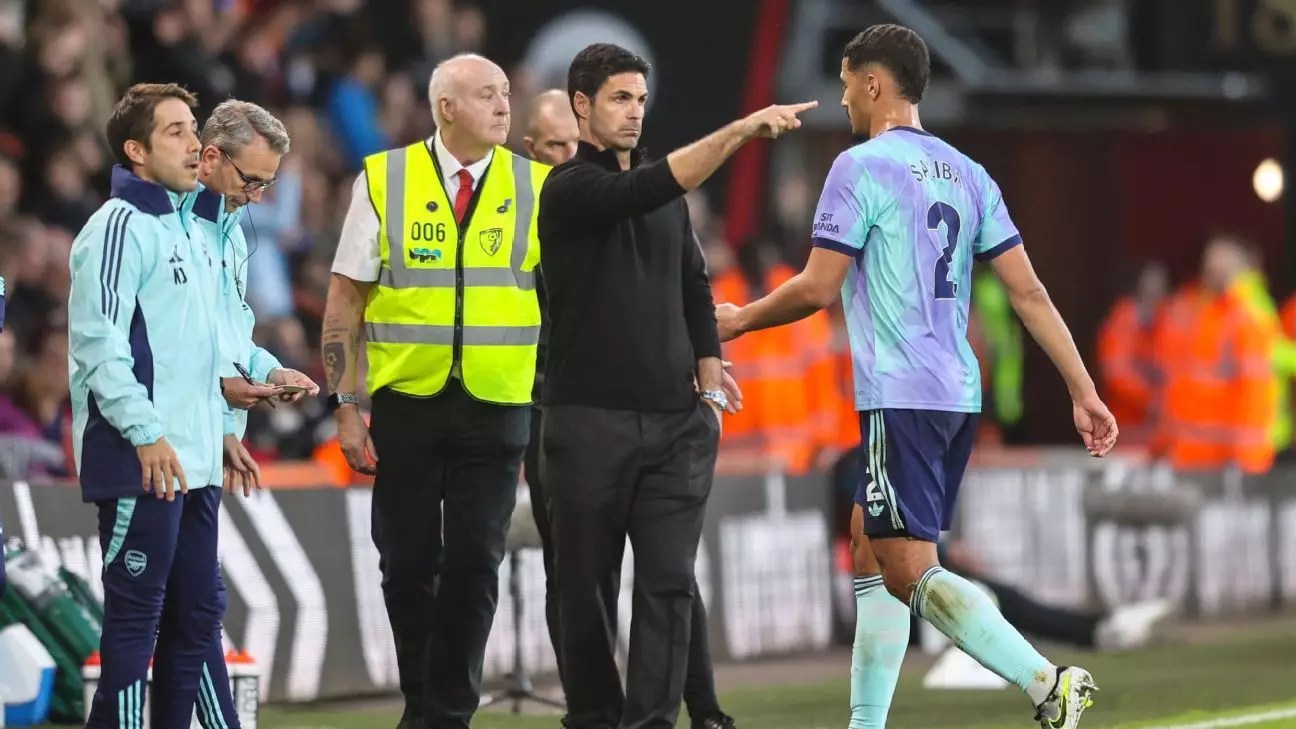Arsenal’s promising season has been marred by lapses in discipline, exemplified by the three red cards received in just eight Premier League matches. Especially notable is William Saliba’s recent dismissal during the team’s 2-0 loss to Bournemouth, which marked a significant turning point for the squad. Head coach Mikel Arteta expressed frustration over the frequent loss of players due to disciplinary actions, emphasizing the urgency of rectifying this trend.
Red cards can severely disrupt team dynamics, leaving the remaining players to compensate for the lack of manpower on the pitch. This season, Arsenal’s indiscipline has jeopardized not only their game strategy but also their overall performance. Arteta’s acknowledgment of the issue is crucial; it signifies that he recognizes the need for stability in his squad and that a heavier reliance on defensive discipline is paramount for long-term success.
The Aftermath of Discipline Issues
Arteta pointed out that while the specific circumstances surrounding each red card may differ—ranging from reckless tackles to tactical fouls—the underlying issue remains the same: the necessity for players to uphold discipline at all times. The team has found it challenging to recover from these incidents, as they often set off a chain reaction where the remaining players must exert increased effort, leading to fatigue or further errors.
The current squad’s reliance on reactive measures after a disciplinary failure is insufficient. Arteta noted that while Arsenal managed to secure a point in some matches even after being reduced to ten men, this approach can only sustain the team for so long. The loss against Bournemouth illustrates the limitations of this strategy, highlighting that the club cannot afford to play with diminished numbers against tough competitors.
As the Gunners prepare for their next challenge in the UEFA Champions League against Shakhtar Donetsk, Arteta sees the recent defeat not merely as a setback but as a crucial learning opportunity. “We need to turn this pain into a catalyst for our performance,” he emphasized. Pain, in this context, refers not merely to the scoreboard but also to the recognition of weaknesses that can be addressed for future success.
By fostering a mindset that views adversity as a prompt for growth, Arteta aims to galvanize his players. The challenge lies in translating this perspective into actionable discipline on the field. As players like Bukayo Saka inch closer to return, their influence will be vital. A core group of disciplined and focused players can serve as a foundation for the desired change, serving as role models for others to emulate.
As Arsenal gears up for critical matches, the emphasis on eradicating poor discipline will be of utmost importance. A culture promoting accountability is essential if Arteta’s vision for the squad is to be realized. Being competitive at the highest levels requires each player to recognize the impact of their decisions on collective outcomes. Therefore, building a disciplined, cohesive unit should remain a priority as Arsenal navigates the demands of both domestic and European competitions.
The next chapter of Arsenal’s season hinges on their ability to move beyond individual errors and to channel the lessons learned from past mistakes into future successes.


Leave a Reply